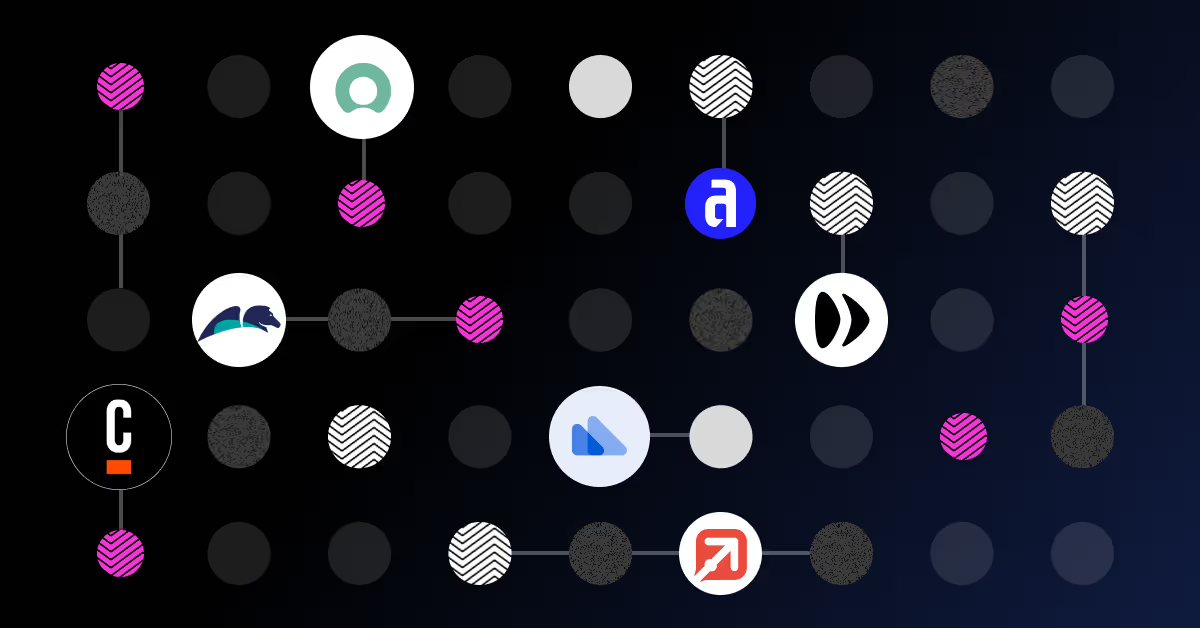Service operation teams are rushing to adopt GenAI, here’s what you should know
.svg)
McKinsey released its State of AI 2023 report last week, showcasing a transformative shift in service operations driven by generative AI. The report findings are based on a global McKinsey survey taken by C-Suite Executives, Senior Managers and Mid-Level Managers across various industries including business, legal, finance, healthcare and pharma. It reveals that 10% of service operation teams are already using generative AI to drive efficiency, enhance customer experience and unlock growth opportunities.
We asked our Head of Research and Development, Sam Ward to digest the reports key findings, and describe what is happening on a granular level to influence these shifts.
1/3 of workplaces have already adopted GenAI
Until very recently, AI was largely gatekeeped by techies with the advanced knowledge to manage and maintain complex AI solutions. AI adoption has required ongoing investment in maintenance and enhancement (MLOps) and substantial resources in data comprehension, collection, cleansing and preparation - all prerequisites before AI could be explored.
Now, the situation is very different. McKinsey’s report shows that nearly a quarter of C-suite executives are personally engaging with GenAI for work. And, over a quarter of respondents from AI-adopting companies say GenAI is a top of the agenda for board-level employees.
That’s all thanks to GenAI. For the first time in history, process and business domain experts are able to harness the prowess of AI without the need for an expensive and time intensive MLOps team. Lowering costs and democratising AI means that doors that were previously closed to some businesses/sectors are now open, creating a positive feedback loop for adoption to thrive. The simplicity of GenAI is encouraging widespread adoption and has already built an entirely new picture of AI – one where daunting technical monoliths are tamed and innovation flourishes.
10% of service operation teams are using GenAI
Industries intertwined with human interactions are experiencing a notable surge in the adoption of GenAI, as their goals naturally align with the capabilities of these advanced tools. The distinctive advantage of GenAI tools is that they are able to act in a more consistent ‘expert’ persona and quickly leverage experience to deliver a more consistent customer experience. It explains why service operations leaders are leveraging GenAI chatbots for customer service and even generating initial drafts of emails.

We are seeing the first wave of human/AI teams where AI tools are co-pilots, supporting people in operational roles with tailored and powerful insights and operations. Think of the person sitting near a pond, the person often can only really see the surface - they cant see below the water. An AI co-pilot can delve beneath the depths, extracting a wealth of information that can be presented in an easy-to-interpret form.
As we move forward, I predict that we will see the implementation of local knowledge graphs or stores that represent a persons unique experiences. This augmentation could help to tailor further and enhance value, akin to a personal co-pilot.
Cost reduction is a key motivator for AI adoption
Unsurprisingly, the report underscores cost reduction (33%), revenue increase (21%), and value enhancement through AI integration (33%) as the primary drivers for AI adoption, illustrating how AI is strategically aligned with core business objectives.
40% of organizations plan to increase their investment in AI
Until very recently, advanced reasoning using various forms of AI was a privilege reserved for large organisations that could shoulder the associated costs. GenAI breaks that barrier and really allows any company that understands their customers needs to start making more informed decisions. Approximately one-third of McKinsey survey respondents report regular usage of generative AI in at least one business function. Businesses can articulate those needs based on the power and wealth of information stored within GenAI tools.

Of the organizations adopting AI, 60% are incorporating generative AI solutions, with service operations, including customer care and back-office support, emerging as a prominent domain for AI integration. Additionally, it is becoming a prevailing practice to employ GenAI for verifying compliance within the business or industry.
Jobs in service operations are predicted to decrease
While generative AI is expected to impact various functions, service operations is the only area of eight surveyed where a decrease in workforce size is anticipated. This echoes McKinsey's earlier research over the past few years, emphasizing that AI's potential to automate tasks doesn't necessarily equate to the complete elimination of job roles, but rather reskilling as a preferred strategy over replacement.
At Enate, we advocate in favour of reskilling and pivoting from customer service to customer success as an alternative to replacement. AI should exist to enable productivity and remove mundane, repetitive work, allow people to do more value-add work, not replace the workforce altogether.
Prompt engineering roles have surged
By 7% over the past year, indicating a growing demand for specialized AI-related skills. The role of ‘AI whisperer’ is something that has rapidly become important within businesses. ‘Prompts’ or questions are the way in which most GenAI tools are interfaced and being able to craft a prompt that works with your data and consistently delivers actionable values is vital to unlocking the power of GenAI.
The role of Prompt Engineer has traditionally come at high cost, as the skillset previously fell within the remit of AI domain experts. Prompts were not linguistic but rather mathematical expressions of the data and the desired outcomes. Gatekeeping the power of AI behind a set of tools and understanding that was not common in the business landscape. Prompts now leverage something we all understand: language.
Going forward, I worry that we may see bias within models towards a specific language (likely English) meaning that countries where the native language isn’t English will suffer as they may struggle to implement prompts that rely on more nuanced language. Another fear is that adoption of GenAI will become more costly in areas of the world that are not native English speakers).
Only 21% of AI-enabled workplaces have appropriate governance policies in place
Probably the most worrying part of the report is that few companies seem fully prepared for the business risks GenAI tools pose. Just 21 percent say their organizations have established policies governing employees’ use of generative AI technologies in their work. Of those 21%, inaccuracy was the leading reason for governance, with security coming in second place. Overall, most respondents say their organizations are not addressing AI-related risks.

Distinguishing between the potential of GenAI and effectively integrating it into a business process is crucial. Just as in the initial stages of GPS technology, those who overly relied on it prematurely often found themselves stuck down a dirt path. Similar risks loom with GenAI, as its complete implications are not yet fully comprehended, and its responses cannot be universally applied to customers or seamlessly woven into processes.
With our own creation, EnateAI which is plugged into our orchestration platform and focuses on operationalizing AI for efficiency, we’ve ensured it adheres to the highest levels of security and governance. It’s powered by the Microsoft Azure OpenAI Service so customers have their own private network and offers over 90% accuracy on sentiment analysis, data extraction and email triage.
When considering GenAI tools, always do your due diligence before jumping in with two feet. You need a way of measuring the outcome you’re expecting, and you need a crystal-clear policy around data and how to manage it. For those service organizations who are serious about AI, I would recommend appointing a Chief AI Officer to set guard rails around it and lead on the policy side of things.
Conclusion
The State of AI 2023 report by McKinsey signifies a pivotal moment in the evolution of AI adoption, particularly within the realm of service operations.
As AI continues to transform businesses, leaders are recognizing its strategic importance, investing in generative AI technologies, and reshaping service operations to deliver greater efficiency and enhanced customer experiences. The findings underscore both the opportunities and challenges that lie ahead, providing valuable insights for organizations navigating the dynamic AI landscape.





